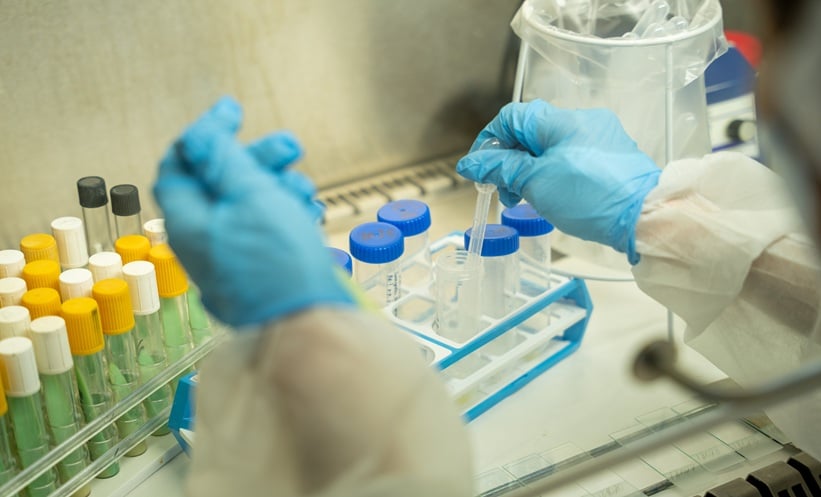A FAST, low-cost tuberculosis (TB) test that delivers results in under an hour from blood, saliva, or sputum samples could dramatically improve care in both well-equipped hospitals and resource-limited settings. Designed as a self-contained “lab-in-tube” system, this handheld device uses CRISPR-Cas12a technology to detect Mycobacterium tuberculosis (Mtb) DNA with high accuracy, without the need for traditional lab processing.
In newly published research, the test showed strong performance in a range of clinical environments. For children aged 1 to 16, the test detected both pulmonary and extrapulmonary TB from serum cell–free DNA with 81% sensitivity, outperforming both culture (55%) and GeneXpert MTB/RIF (68%), while maintaining 94% specificity. These results meet the World Health Organization’s target product profile for nonsputum TB diagnostics.
The assay consists of a cellulose disc preloaded with freeze-dried reagents for recombinase polymerase amplification and CRISPR-Cas12a detection. It requires no conventional DNA extraction, and its results are analyzed automatically by a handheld device with a simple LCD user interface. The entire process takes approximately one hour from sample application to result.
Adults with bacteriologically confirmed pulmonary TB were also tested using saliva and sputum samples. Their results were comparable to those from established reference methods, further supporting the test’s versatility.
In addition to diagnosis, the test may help track treatment response. In pediatric patients, changes in test results during treatment were strongly predictive of clinical improvement, suggesting the potential for use in monitoring therapy effectiveness.
This lab-in-tube assay offers a promising, accessible tool for TB diagnosis and disease management, particularly in regions where traditional diagnostic infrastructure is lacking.
Reference: Youngquist B et al. Rapid tuberculosis diagnosis from respiratory or blood samples by a low cost, portable lab-in-tube assay. Sci Transl Med. 2025;17(793).








